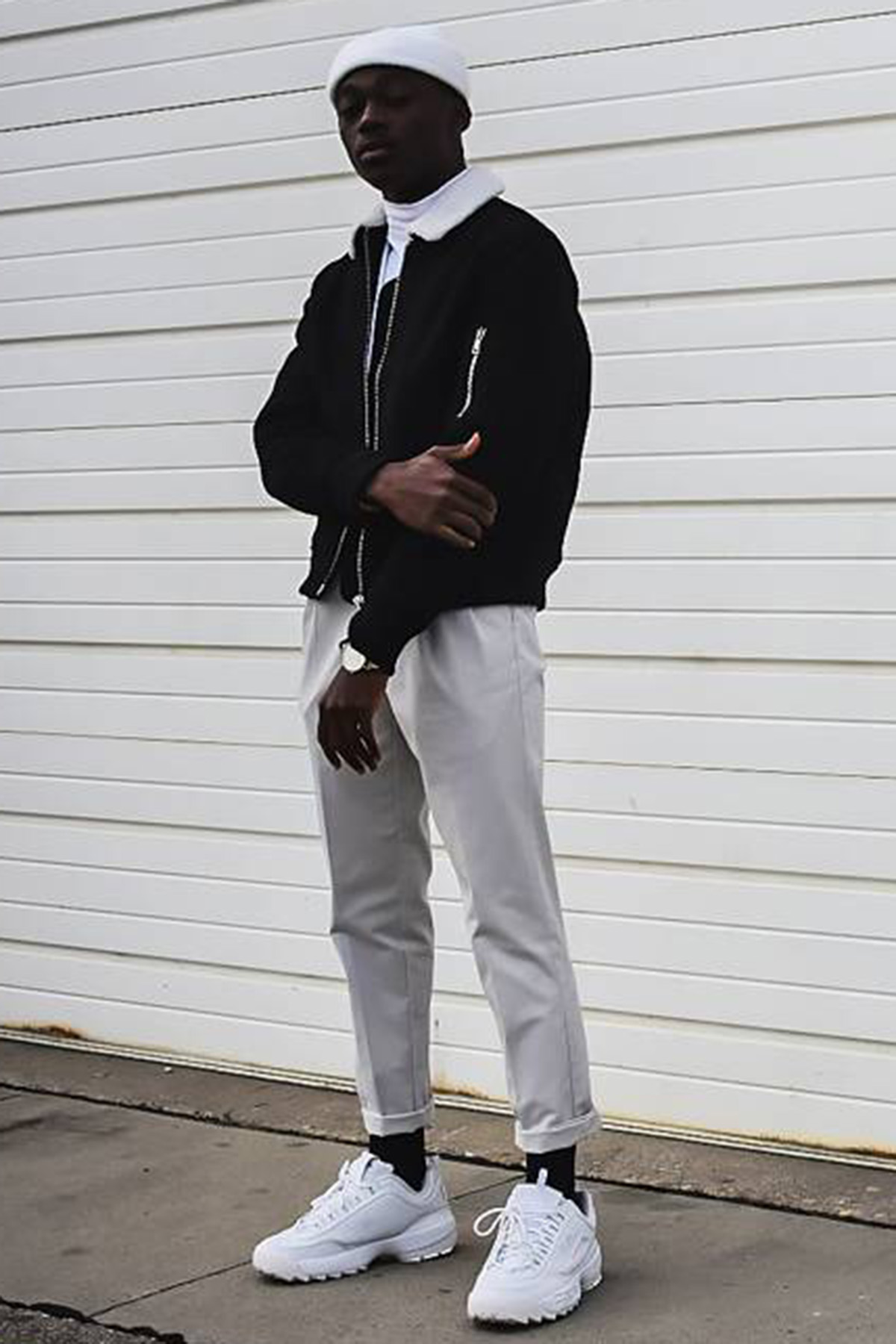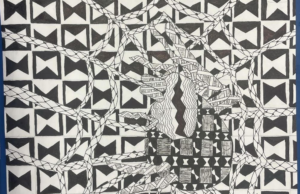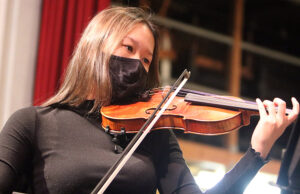Artist of the Week: Senior Frank Opoku
“Music is important because music can change who you are as a person …”
 “The more I write, the more I keep getting better, and the more creative ideas pop into my head. I learn something new every day from making music,” senior Frank Opoku said.
“The more I write, the more I keep getting better, and the more creative ideas pop into my head. I learn something new every day from making music,” senior Frank Opoku said.
Opoku, a native of Ghana, West Africa, began his start in rapping by performing songs by mainstream rappers to his friends, which morphed into an unexpected passion. “I started making parody versions, and my friends liked it. I felt like I had this talent in me,” Opoku said. “The more I kept writing these parodies, the more they kept getting better, and then I began to have a passion for it.”
After spending time adding his own spin to other verses, Opoku began to write his own, and has been since 2013, under the name Je Skido.
As a rapper, Opoku aims to spread messages about life through his own perspectives, as well as the perspectives of others. “I think, ‘How would someone going through depression and suicidal thoughts feel like? What about someone going through a breakup? What kind of words would they say and think?’” Opoku said. “I write from that perspective as if I’m the one going through these problems.”
In addition to creating emotionally driven verses, Opoku also makes songs he hopes people will enjoy when performed live. “These jam songs would be the songs I would be performing when I’m on stage and concerts.”
Growing up in Ghana, Opoku’s sparking influence was Sardokie, a Ghanaian rapper. Just as Opoku himself has done, his influences branch globally with artists like Joyner Lucas from Massachusetts and Hopsin from Los Angeles, as well as more mainstream American rappers like Kendrick Lamar. “They spit real facts and give you chills,” Opoku said.
When making music, Opoku’s creative process requires inspiration and drive from a variety of places like pop culture and life. “Every time you see me alone, I’m thinking of ideas because to get an idea and a concept to talk about can last you a lifetime, so I utilize each free time I get,” Opoku said
But perhaps the most important part of his process is building the base from which the entire song will be constructed: the beat. Opoku begins his creation process with listening to beats to use as muses.”Powerful beats can drive you to this a fantasy world where you get a whole lotta ideas to pick from, and finding this type of beat is so hard you might give up really fast,” Opoku said.
While writing a rap is a challenge within itself, Opoku faces further challenges as an artist. “After I get an idea, another big struggle is writing,” Opoku said. Because Opoku is a native of Ghana, English is not his first language. “I find it so hard to express myself in [English], but that doesn’t make me quit. Most of the time I know what I’m trying to say in my language, but then expressing it for [you all] to get it, I get the urge to give up,” Opoku said.
However, this challenge is one that Opoku seems to enjoy. “I see struggling to come up with ideas and expressing myself as a competition/test to see if I actually love music like I say I do,” Opoku said.
 Through persistence and dedication, Opoku has released an album entitled “Genesis,” which includes 10 original songs, which sold 50+ CDs within the first week of release. “Everywhere I went I had my CD with me. At Village Inn I tipped a waiter and some waitresses my CD a couple times,” Opoku said. “It looked funny tipping them a CD, but also I was building my fan base and spreading my music to them.”
Through persistence and dedication, Opoku has released an album entitled “Genesis,” which includes 10 original songs, which sold 50+ CDs within the first week of release. “Everywhere I went I had my CD with me. At Village Inn I tipped a waiter and some waitresses my CD a couple times,” Opoku said. “It looked funny tipping them a CD, but also I was building my fan base and spreading my music to them.”
In a location like Iowa, where there are not many resources for up-and-coming artists like Opoku, as a rapper, Opoku set some hefty goals, including a short term plan for a video production and a long term goal of growing his platform. “My goal is to shoot a music video that’s going to inspire people that go through bullying and depression,” Opoku said. “In the future, my goal is to build my fanbase and get more people to join the fam.”
To accomplish this, Opoku plans to pursue music after high school and extend his efforts into college amidst his studies. “I will have a schedule for when to write songs and when to actually study,” Opoku said.
Opoku’s music, released under the name Je Skido, can be found on multiple streaming platforms such as Spotify, Soundcloud, iTunes, Amazon and Google Play.
“Music is important because music can change who you are as a person. Good music like what I do would make you question yourself about ‘Is what I’m doing right or not,’ and also when you are running out of words or can’t express yourself, music helps you express yourself in so many different ways,” Opoku said. “Music is powerful. Music is beautiful. Music is art.”









You must be logged in to post a comment Login